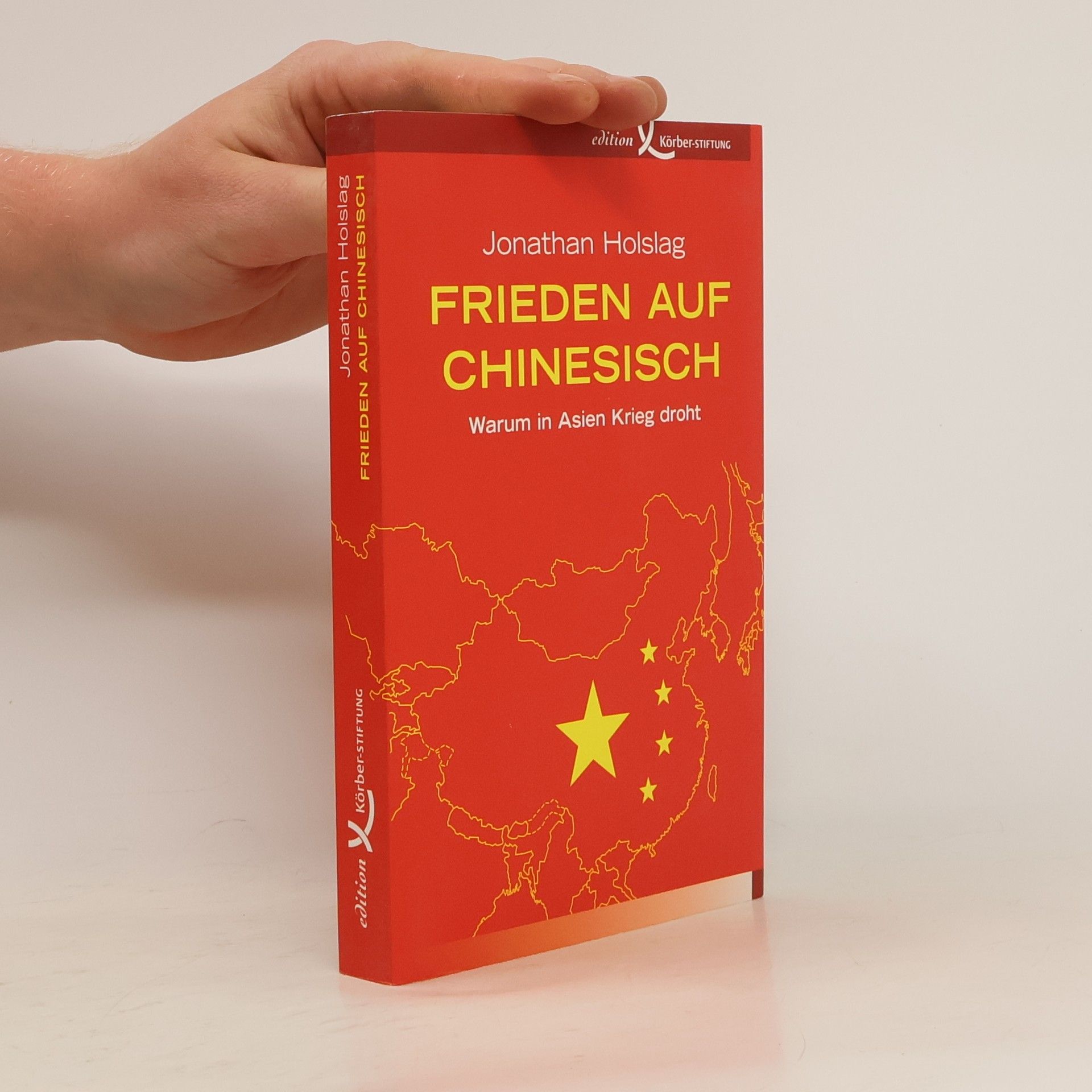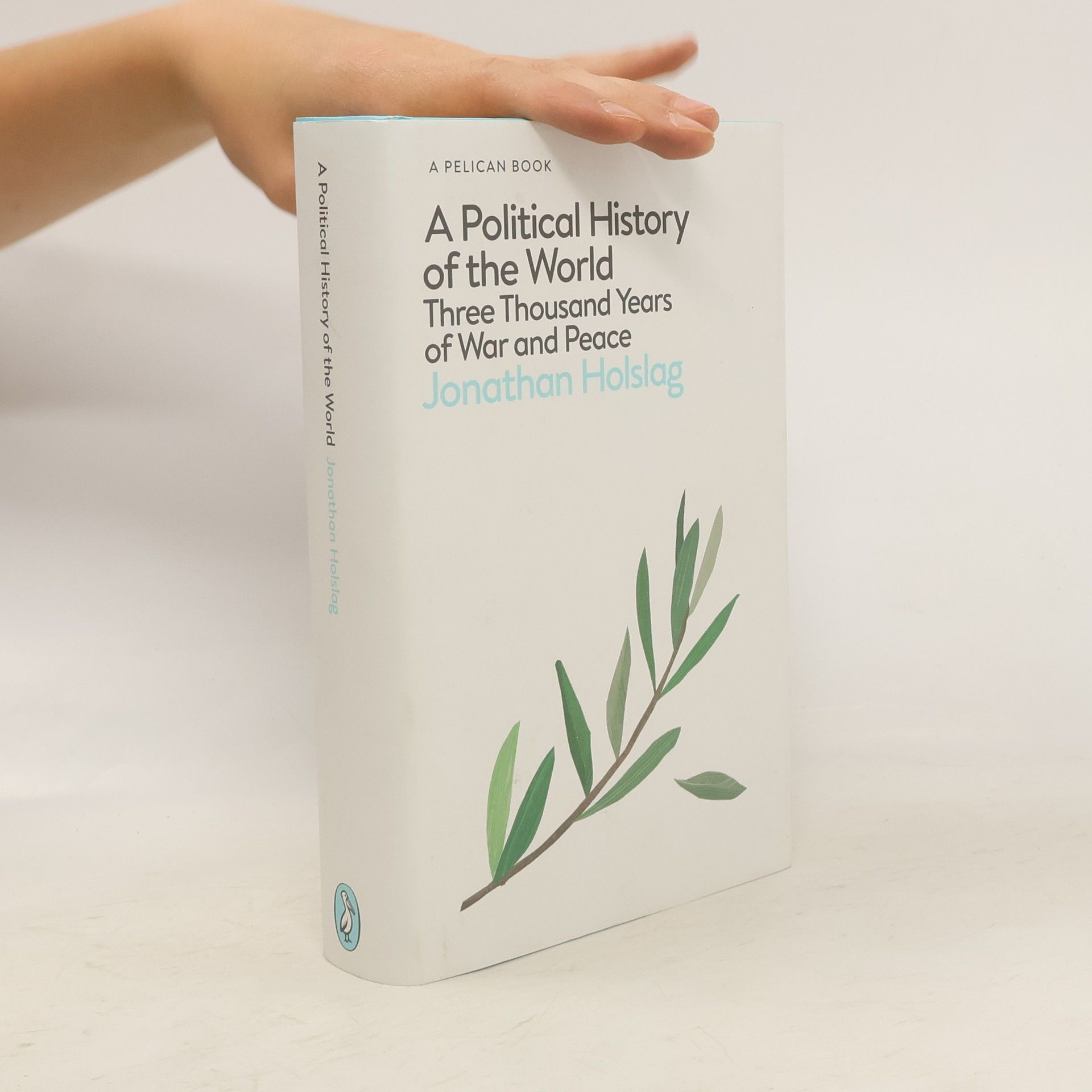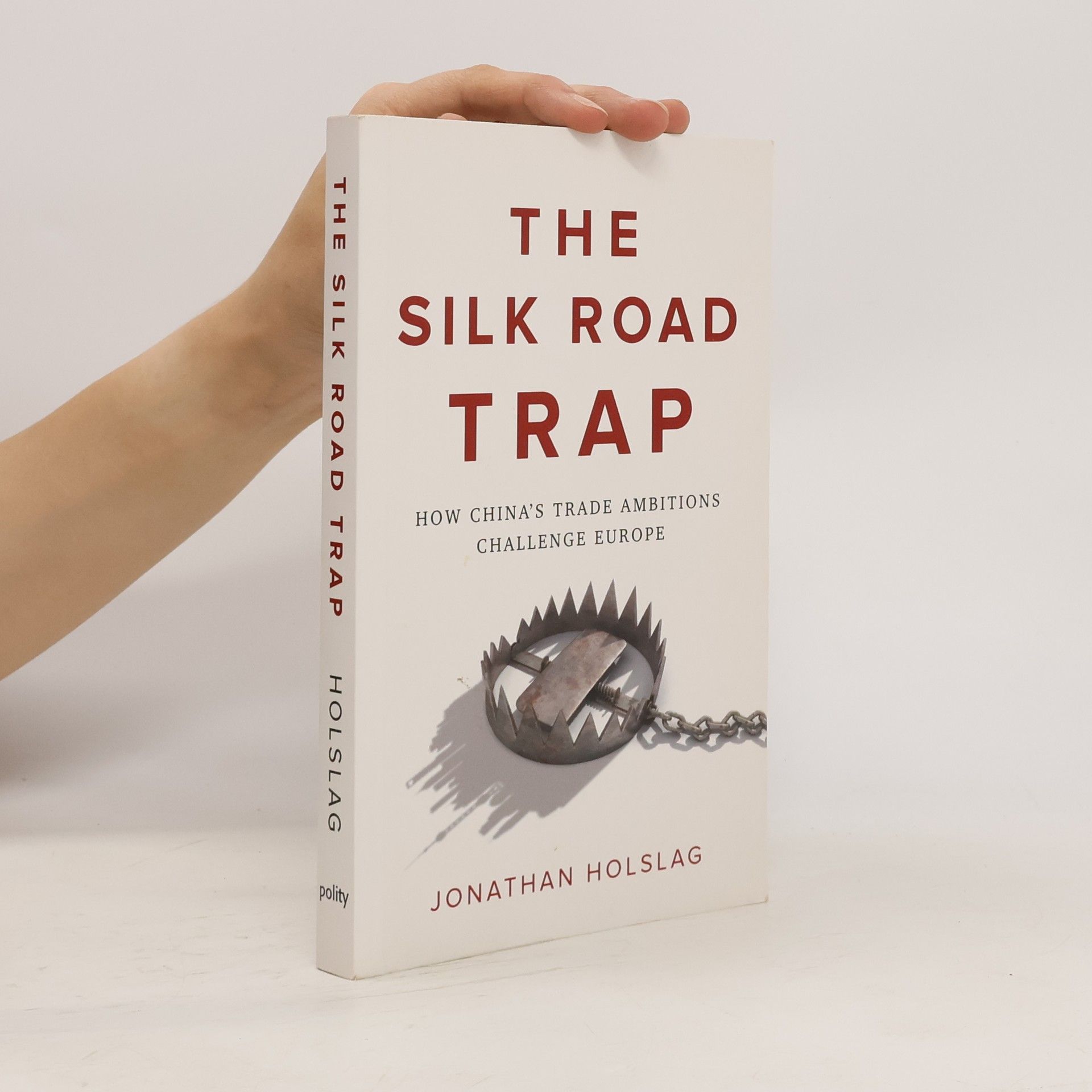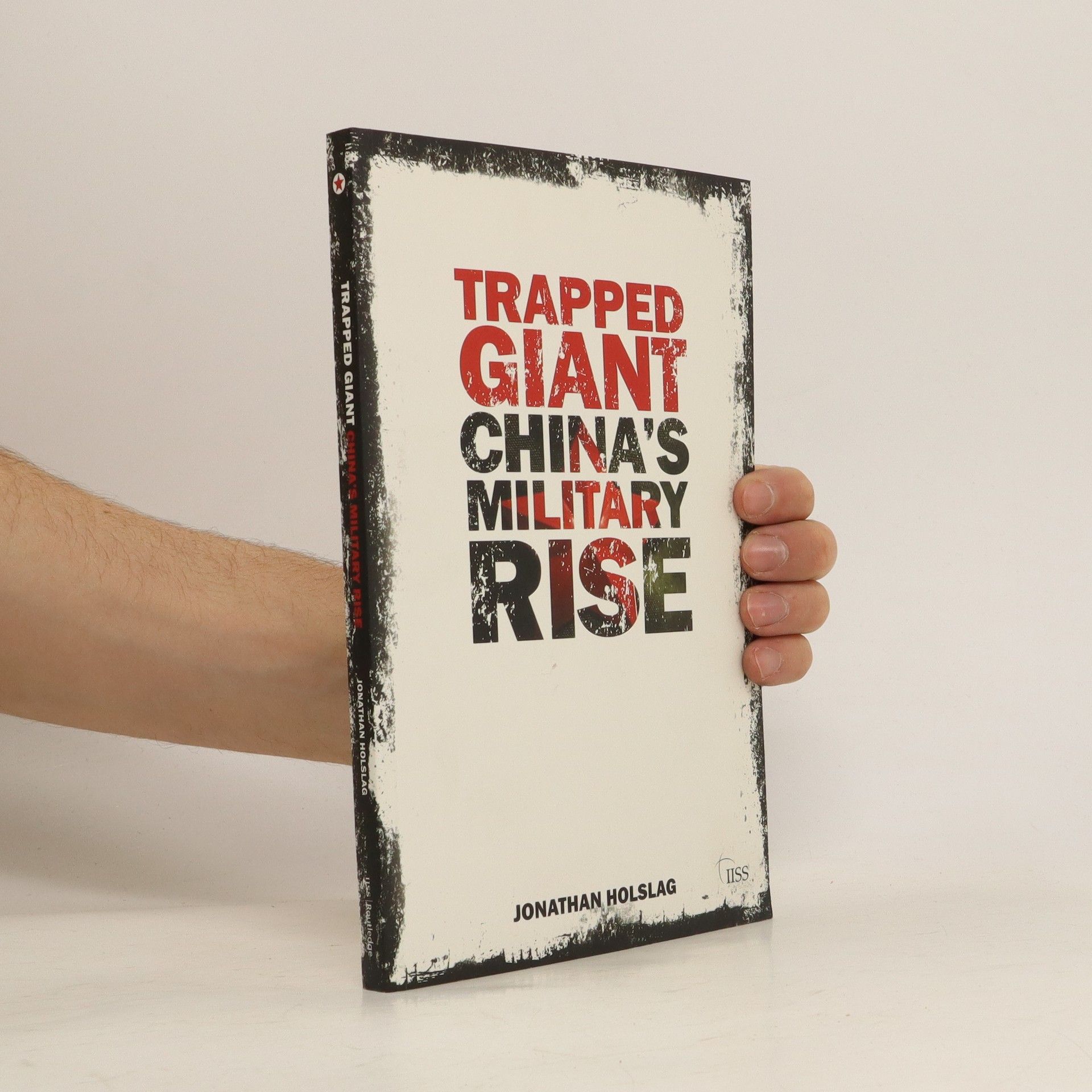1989 ushered in a new age of freedom and prosperity. Thirty years later, the golden era is over. What went wrong? How did the age of globalization – of growing connectivity, affluence, and growth – give way? Jonathan Holslag navigates through the calm seas and rip tides of global politics from the Cold War to the present. He tells a story of faltering momentum and squandered opportunities that explains how the West's sources of strength were lost to rising consumerism, unbalanced trade, and half-hearted diplomatic engagement. All the while, other powers, like China and Russia, grew stronger. With his trademark verve, Holslag untangles the threads of this story to reveal that it was not so much the ambition of China, the cunning of Putin, or the greed of African strongmen that led the world into this dark place; it was the failure of the West to listen to its people, to show clear leadership, and reinvent itself, in spite of ample evidence that things were going awry. Impressive in scope and analytical depth, World Politics since 1989 is a magisterial account of how we got to where we are and what lessons can be learned from the political arrogance and complacency of the recent past.
Jonathan Holslag Libros
Este autor examina críticamente el impacto del ascenso de China en la política global, con un enfoque particular en la posición cambiante de Europa en la arena internacional. Su trabajo profundiza en las intrincadas dinámicas de los cambios geopolíticos, ofreciendo perspectivas sobre los desafíos y oportunidades que se avecinan para la estabilidad global. Con un agudo enfoque analítico, explora las consideraciones estratégicas que dan forma al futuro de las relaciones internacionales y el orden global.






Emboldened by economic strength and growing military power, China is emerging as a challenger to US dominance in the Pacific. But its promised peaceful rise has done little to convince regional powers that it will not use force to press longstanding territorial claims or attempt sea-denial operations in Asia's lucrative trade routes. Uncertainty about Beijing's intentions could thus beget a new, unpredictable arms race as states scramble to protect their interests. For the short term, however, governments are weighing up the question of how far their interests may be served by cooperating with China and trying to usher it into the role of a responsible global power, while hedging their bets with traditional alliances and military modernisation.This issue analyses China's inexorable rise from peasant society to economic powerhouse. In charting the line that Beijing has walked in building up its forces alongside its network of trading links to Asia and the US, it reveals the challenge that lies ahead for namely, to follow China's development ever more closely, to determine whether it could come to see the costs of military conflict as outweighing the benefits of peaceful trade and economic growth.
The Silk Road Trap, How China's Trade Ambitions Challenge Europe
- 232 páginas
- 9 horas de lectura
For almost two decades, China has claimed that its expanding economy benefits Europe, stimulating European growth, exports, and employment. But the reality is not so clear-cut. Whilst individual companies may have profited from China’s economic rise,unbalanced trade with China has actually cost Europe over 1.4 trillion euros in the last ten years as well as undermining its political influence. China’s monumental infrastructural project, the Belt And Road Initiative or New Silk Road as it has come to be known - is set to make this situation even worse. The Silk Road Trap is the first book to expose just how risky this uneven partnership is for Europe. In it, leading expert on Asian affairs Jonathan Holslag, argues that Europe must reduce its reliance on China and work on building a stronger and more sustainable European economic model. By revealing the political aspirations and economic strategy behind the new Silk Road, he lays out its implications for specific European industries, from steel over aircraft to robots. Holslag, though critical of China, does not, however, make the case for confrontational, Trumpian protectionism. Instead, he posits that the new Silk Road need not ensnare Europe; it offers the continent a unique opportunity to transition from a future "made in China" to one that is "made in Europe".
A Political History of the World
- 656 páginas
- 23 horas de lectura
In three thousand years of history, China has spent at least eleven centuries at war. The Roman Empire was in conflict during at least 50 per cent of its lifetime. Since 1776, the United States has spent over one hundred years at war. The dream of peace has been universal in the history of humanity. So why have we so rarely been able to achieve it? In A Political History of the World, Jonathan Holslag has produced a sweeping history of the world, from the Iron Age to the present, that investigates the causes of conflict between empires, nations and peoples and the attempts at diplomacy and cosmopolitanism. A birds-eye view of three thousand years of history, the book illuminates the forces shaping world politics from Ancient Egypt to the Han Dynasty, the Pax Romana to the rise of Islam, the Peace of Westphalia to the creation of the United Nations.This truly global approach enables Holslag to search for patterns across different eras and regions, and explore larger questions about war, diplomacy, and power. Has trade fostered peace? What are the limits of diplomacy? How does environmental change affect stability? Is war a universal sin of power? At a time when the threat of nuclear war looms again, this is a much-needed history intended for students of international politics, and anyone looking for a background on current events
Friedliches Wachstum, Kooperation und Fortschritt: Das sind die erklärten Ziele Chinas. An Auseinandersetzungen, gar Krieg mit seinen Nachbarn hat das Riesenreich kein Interesse. Doch kann das Land dieses Versprechen auf Dauer halten? Der Politikwissenschaftler Jonathan Holslag ist überzeugt: Chinas Aufstieg wird einen kritischen Punkt überschreiten, von dem aus weiteres Wachstum mit friedlichen Mitteln nicht mehr möglich ist. Dahinter steht nicht grundsätzlich eine aggressive Strategie, doch was für China ein berechtigtes Streben nach Sicherheit und Wohlstand ist, wird das Machtgleichgewicht in Asien weiter verschieben: Langfristig, so Holslag, wird die chinesische Führung ihre wirtschaftlichen und politischen Interessen auch militärisch durchsetzen – nicht zuletzt um von inneren Spannungen abzulenken. Ein Krieg in Asien ist damit nicht unausweichlich, aber wahrscheinlich: Dies zu erkennen ist für Holslag der erste Schritt, ihn abzuwenden.
De kracht van het paradijs
Hoe Europa kan overleven in de Aziatische Eeuw
- 608 páginas
- 22 horas de lectura
Jonathan Holslag schreef het meest urgente boek van dit jaarWij, Europeanen, leven met het gevoel dat de toekomst aan ons voorbijgaat. De crisis woedt als een storm over het continent en zet alle zekerheden op losse schroeven. Maar hebben we echt de boot gemist? En begrijpen we wel goed wat er aan de hand is? Jonathan Holslag beschrijft in De kracht van het paradijs op overrompelende wijze de naoorlogse economische geschiedenis van Europa. Het is een episch verhaal over onze drang naar welvaart en de manier waarop we het noorden zijn kwijtgeraakt. Als chroniqueur van zijn tijd kent Holslag zijn gelijke niet. Tegenover het haarscherpe, ontstellende portret van een continent met een kapseizende economie, plaatst Holslag de mogelijkheid van een nieuwe renaissance. Diep in Europa zit nog steeds de kracht van het paradijs.`Jonathan Holslag heeft een boek geschreven dat gewaagd en elegant is, visionair en stijlvol. Dit is een Europeaan die bereid is moeilijke waarheden te vertellen. - Robert D. Kaplan, auteur van De wraak van de geografie